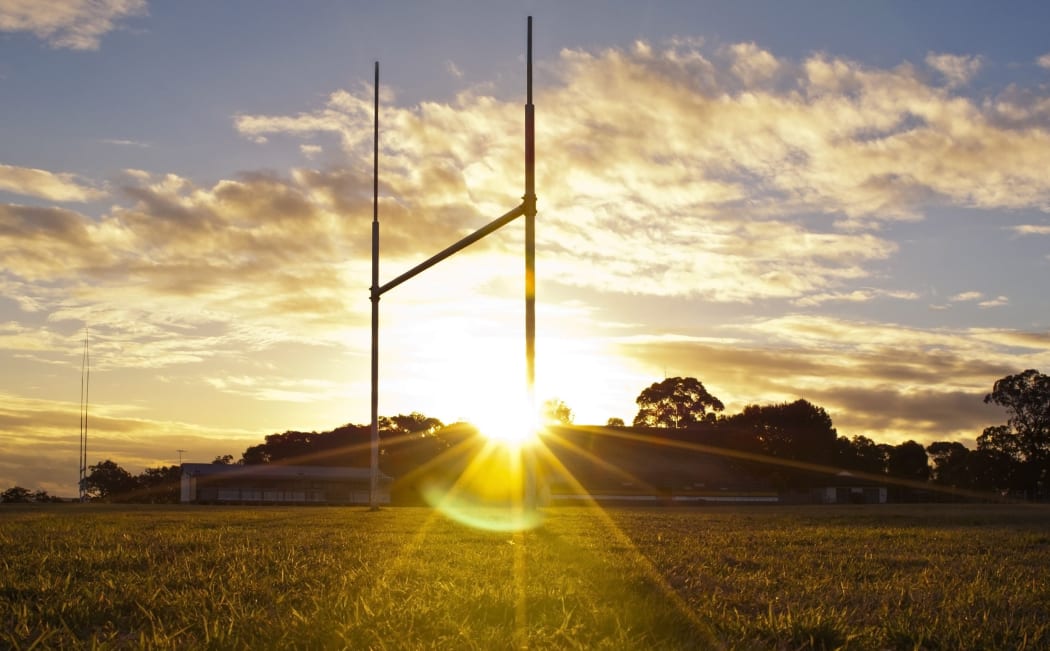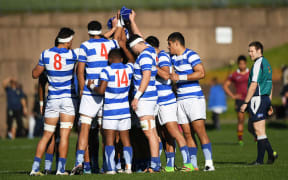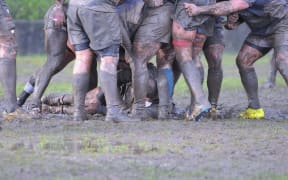An Auckland rugby union's decision to scrap its junior representative programme has drawn scathing criticism on social media, with some former members calling it a sad day for the sport.

Photo: 123rf.com
The North Harbour Rugby union, which represents 12 clubs, will also not send an under-13 team to a popular junior tournament.
General manager David Gibson said the change had been debated for more than a year and the decision was in the players' best interests.
"It's been a bit of a process over the last 14 to 15 months, born out of our purpose which is to improve lives through rugby and when we speak to that we think about what we're trying to achieve, and that's maximising engagement and growing participation with good quality experiences.
"For us when we think about our junior rugby space it's really around some of the evidence that's out there around this climate of development, and fun around our junior rugby programmes. We want to make sure we put the participant at the centre of this and provide a framework that they can enjoy themselves and play this great game that is rugby."
The union has just under 10,000 members, around 7000 of them junior.
This season it would set up a new rugby development experience for junior players as well as a new non-contact grade for 8 to 13 year old boys and a girls under-15 club and school grade.
Mr Gibson said he understood not everyone would agree with the decision.
"It hasn't been all plain sailing, and we're pretty upfront about that we accept that this won't be accepted in some parts and it will be criticised but we've just got to keep walking into this conversation and try encourage people just to understand the reasons why we are doing it."
"Their reasons are just, don't get me wrong, because I've been there and done that."
The philosophy matches NZ Rugby's interest in encouraging multi-skilled athletes, he said.
"Harbour Rugby's purpose is improving lives through rugby... and when it comes to our community we want to maximise engagement and grow participation.
"For us this means... putting the kids at the centre of the experience. The more kids that play, the more they have fun, the longer they will stay in the game."
Sport New Zealand national consultant Alex Chiet said the decision was fantastic.
"It's really good to see. Numbers have been declining in organised sport for many years now and they're also understanding that some of the so-called talented kids aren't reaching their potential until later on so it's bold and courageous leadership which is actually putting the needs of kids and participants first."
Mr Chiet said it was backed by robust research.
"There's perceptions out there that if you want to be the next All Black, Football Fern, whatever it may be, you need to choose your sport early, commit to training all year round and then later on you're going to have a better chance of reaching that pinnacle, but actually when we look at the data, the information and the research it couldn't be further from the truth."
He said the move would likely help children stay in sport longer.
"Kids are leaving sport in droves and we're seeing a lot of sports start to tackle this, the Rugby Union, New Zealand Cricket, New Zealand Hockey, New Zealand Football and New Zealand Netball are all starting to tackle this change and are actually working collectively on how they can start to get some messages out there to parents, coaches etc on the importance of kids having fun... rather than a win at all costs focus."
"When we're encouraging kids to be too competitive too soon, we're denying them the opportunity to establish active lifestyles for life. A lot of kids are in love with these sports and suddenly they're not being able to play because they don't make a top team at and early age."
He said specialising in a sport was better done later in life.
"Historically a lot of sports are putting 80 percent of their resources into 20 percent of its kids far too soon. So you're getting some kids that are getting too much and others that just aren't getting a quality experience."
"They'll still get their rep opportunities it'll just come a bit later."
"This is always going to divide the public but if people take the time to read the information they might be pleasantly surprised."
North Harbour's engagement and participation team leader, Dr Bill Wigglesworth, is also a senior lecturer and head of coaching at Auckland University of Technology.
He said it was important for children to have fun, have good support, and the chance to play with mates while learning new skills.
"What we also know is that rugby is a late specialisation sport and introducing [competition-focused] programs too early can create behaviours that discourage participation in kids and have a negative impact on their overall development both physically and emotionally."
But he said "this is not saying performance or representative programs are negative either, New Zealand is world leading from a rugby perspective, and many other sports.
"This is about adjusting our current system and introducing a talent development program at a more appropriate age and stage".




